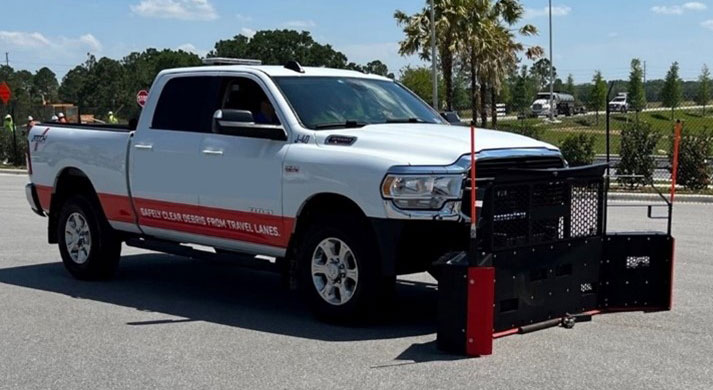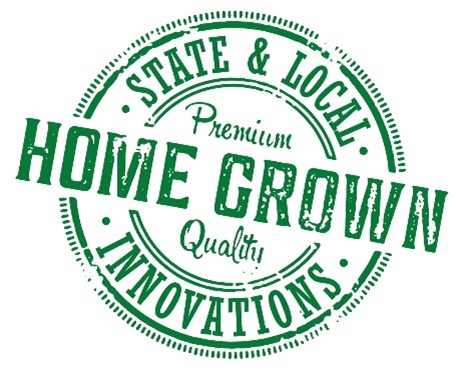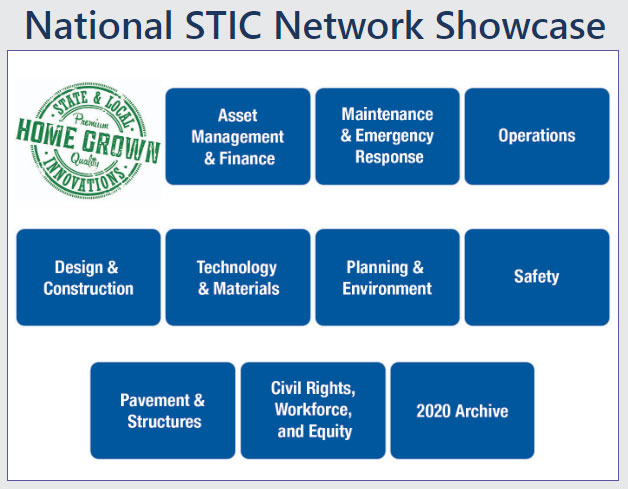May 4, 2023
EDC-7: EPDs for Sustainable Project Delivery

Environmental Product Declarations (EPDs) are tools that report environmental impacts of construction materials. As State DOTs become increasingly aimed at addressing the environmental burdens of infrastructure and seek more sustainable strategies, they are looking for measures that accurately reflect the environmental impacts of each alternative. EPDs communicate the greenhouse gas (GHG) emissions of construction materials in a transparent and standardized manner and provide an opportunity to reduce negative environmental impacts by transforming the project delivery process.
An EPD tells us the impacts that materials such as aggregate, asphalt, cement, asphalt mixtures, concrete mixtures, and steel reinforcement generate on the environment. EPDs communicate the impacts from resource use, energy, and emissions, and agencies can leverage them to support decision-making throughout project delivery.
The Colorado Department of Transportation’s (CDOT) EPD program was featured during day two of the EDC-7 Summit. In July of 2021 Colorado’s legislature passed the Buy Clean Colorado bill, HB 21-1303, which requires contractors to submit EPDs for eligible materials to include asphalt and asphalt mixtures, cement and concrete mixtures, and steel. This prompted CDOT to create its EPD program. The program identified focus bid items and set minimum project cost and quantity thresholds for eligible materials as a way to minimize unnecessary burden on project staff, small suppliers, and contractors while meeting the intent of the bill.
CDOT’s EPD program was also designed with stakeholders in mind. CDOT has conducted multiple workshops and feedback meetings to make sure stakeholders were involved in the program’s development and have an opportunity to give feedback on proposed specifications before they go into effect. Additionally, CDOT provides a number of resources for training and support, including a dedicated email address and a website with video tutorials on EPD implementation, annotated example EPDs, workshop recordings, a spreadsheet tool to determine if EPDs are required for a project, and more.
Since the program began collecting EPDs in July of 2022, CDOT has advertised over 50 eligible projects with the new EPD specification. CDOT will store the data collected from its EPDs and perform statistical analysis on them to determine benchmarks for the program.
Stay up-to-date on EPDs For Sustainable Project Delivery. Subscribe to EPD e-News to receive updates on webinars, case studies, videos and more. To learn more about EPDs for Sustainable Project Delivery, please contact LaToya Johnson, or Migdalia Carrion, FHWA Office of Infrastructure.
Florida Embraces Next Generation Technology to Improve Service Patrol Safety
In 2021 the Florida Department of Transportation (FDOT) lost its fifth Road Ranger service patrol operator to a struck by line of duty death. Since then, the agency has been evaluating a number of Traffic Incident Management (TIM) technologies to improve roadside safety for Road Rangers.
 Hydraulic debris removal devices like this allow debris to be pushed to the road's shoulder safely. (Credit: FDOT)
Hydraulic debris removal devices like this allow debris to be pushed to the road's shoulder safely. (Credit: FDOT)
In 2022, FDOT district Road Rangers and TIM program managers from across the State met at the new SunTrax testing facility in Central Florida. The meeting demonstrated debris removal, crash attenuator, and motorist alert systems. Program managers were able to observe live demonstrations of a hydraulic device that attaches to the front of trucks allowing them to push debris from travel lanes to the shoulder of the roadway. They saw vehicle-mounted crash attenuators, which offer a way to harden the service patrol vehicle against rear-end collisions while they are stopped at incident scenes, absorbing the energy of a colliding vehicle. Finally, a demonstration of motorist alert technology took place on a closed SunTrax roadway where a vehicle on the roadside simulated an alert to approaching motorists (test drivers) of its location. The motorist alert technology published the test vehicle's location to a commonly used smartphone navigation and mapping application. Participants were able to see first-hand how Next Generation TIM technologies can improve responder safety.
To learn more about this and other Next-Gen TIM technologies, contact Paul Jodoin or James Austrich, FHWA Office of Operations.
Discover Home-Grown Innovations from Around the Country

Are you interested in homegrown innovations being used by your peers in other parts of the country? Check out the National STIC Network Showcase, a component of the EDC-7 Virtual Summit. Registering for the event allows you to access all the content through February 2024.

The showcase prominently features several innovations focused on the environment and planning. Learn about the Illinois Department of Transportation's Solar Site Feasibility Study, which is helping Illinois evaluate potential solar array sites to create a list of sites suited for solar production. IDOT is one of the largest landowners in Illinois, and thus has the potential to lead the State in its transition to renewable energy. The sites identified in the study have the potential to create more energy than IDOT consumes.
Celebrate the ingenuity of your peers and read about these innovations—developed and deployed in-house at transportation agencies nationwide. Additionally, we invite you to watch the one-hour presentations on-demand that feature many of these and other innovations.
Stay Up to Date on the EDC Innovations That Interest You Most

EDC teams are always on the move! If you blink, you could miss out on important webinars, case studies, tools, videos, and more. To never miss information for the EDC innovations that interest you most, visit the subscription page and select the topics you’d like to receive updates on directly from the teams that coordinate them.
Recent bulletins:
Local Aid Support Training Catalog 5/1/23
e-Ticketing 5/1/23
Active and Upcoming NOFOs 4/28/23
Local Aid Support 4/26/23
Nighttime Visibility 4/24/2023
UHPC 4/20/2023
CHANGE 4/20/2023
Rethinking DBE for Design Build 4/20/2023
Data Driven Safety Analysis 4/20/2023
Strategic Workforce Development 4/19/2023
TOPS 4/19/2023
Integrating GHG Assessment and Reduction 4/17/2023
Build a Better Mousetrap 4/17/23
About EDC
Every Day Counts, a state-based initiative of the Federal Highway Administration's Center for Accelerating Innovation, works with state, local and private sector partners to encourage the adoption of proven technologies and innovations to shorten and enhance project delivery.
EDC News is published weekly by the FHWA Center for Accelerating Innovation.
Notice: The U.S. Government does not endorse products or manufacturers. Trademarks or manufacturers‘ names appear in this presentation only because they are considered essential to the objective of the presentation. They are included for informational purposes only and are not intended to reflect a preference, approval, or endorsement of any one product or entity.
Recommended Citation:
U.S. Department of Transportation, Federal Highway Administration
EDC News; April 20, 2023
Washington, DC
https://doi.org/10.21949/1521748


